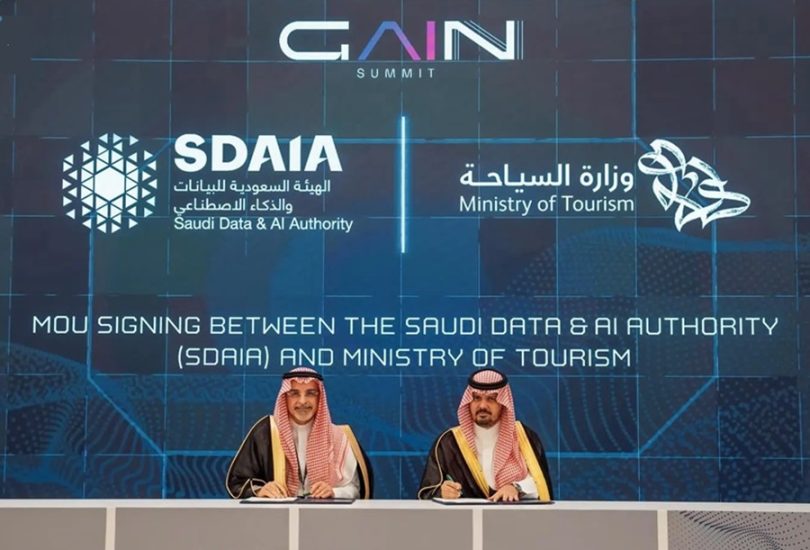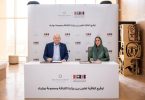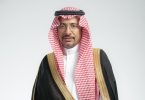The Saudi Arabia Ministry of Tourism and Saudi Data and AI Authority (SDAIA) signed a memorandum of understanding (MoU) to establish an artificial intelligence (AI) center of excellence.
The center aims to support the activation and development of AI technologies in operational processes to enhance the quality of the tourism sector, aligning with the objectives of Saudi Vision 2030.
The MoU was signed by Head of the National Data Management Office Alrebdi bin Fahd Alrebd, and Assistant Minister of Tourism Anas bin Abdullah Al-Sulaie on the sidelines of the 3rd Global AI Summit (GAIN Summit).
The memorandum aims to develop a methodology for integrating data and AI applications to evaluate activities and projects in the tourism sector.
Latest Innovations at Global AI Summit
The Ministry of Tourism also announced the hosting of the “Artificial Intelligence in Tourism” conference, a highlight of the Global AI Summit (GAIN Summit) in Riyadh, which opened today.
The conference will feature discussions on the pivotal role of artificial intelligence (AI) in driving innovation, fostering cooperation, and ensuring sustainability in the Kingdom’s tourism sector. It also aims highlight AI role in enhancing business efficiency, elevating guest experiences, and capitalizing on Saudi Arabia’s rapid tourism growth.
Key topics include the application of evidence-based AI for predicting future trends and developing the tourism sector, the ethical considerations of AI for a sustainable industry, the role of AI in fostering cross-cultural understanding, and the use of AI for improving resource management and reducing environmental impact.
“Our collaboration with leading AI organizations underscores Saudi Arabia’s commitment to revolutionizing tourism through advanced technology,” said Ministry of Tourism Deputy Minister of Digital Transformation and Information Technology (IT) Aljoharah Almogbel.
“By harnessing the power of AI, we aim to enhance visitor experiences and drive sustainable growth in alignment with Vision 2030.”
Under the guidance of the Ministry of Tourism, Saudi Arabia’s tourism sector is actively exploring the potential of AI to transform theoretical concepts into practical solutions for the future of travel and hospitality. Partnerships with global AI leaders solidify the Kingdom’s dedication to accelerating AI adoption, fostering sector growth, and reinforcing its leadership in technological innovation.
The Ministry of Tourism and the Saudi Tourism Authority prioritize investments in technology and data analytics to inform future decisions, streamline business operations, and deliver exceptional tourist experiences. AI’s applications extend to infrastructure development and improvements in essential tourism services such as transportation, accommodation, and airlines.
Surpassing Vision 2030 Tourism Target by 7 Years
The International Monetary Fund (IMF) highlighted Saudi Arabia’s tourism sector as a major contributor to the country’s economic diversification in its 2024 Article IV Consultation report.
The report acknowledged Saudi Arabia’s success in exceeding the Vision 2030 target of attracting 100 million visitors annually by 2023, 7 years ahead of schedule. Tourism revenues reached $36 billion in 2023, with net tourism income increasing by 38%. The sector’s direct and indirect contribution to GDP reached 11.5% in 2023, with expectations to grow to 16% by 2034.
Central to this growth has been a combination of strong domestic demand and increased international arrivals.
Non-religious tourism has surged, with increased leisure travel and visits to friends and relatives driven further by major international events such as Formula One, the 2027 Asian Cup, and the 2030 World Expo.
The IMF report underscored the role of tourism in shifting Saudi Arabia’s service balance to a surplus. This means that the Kingdom is now earning more from international visitors than it is spending on outbound tourism. By 2022, this shift resulted in a positive balance, and 2023 saw further gains through increased revenue from transportation and service exports.
The report also noted that while outbound tourism spending by Saudi nationals declined, and expatriates in the Kingdom significantly increased their leisure spending post-COVID.
Crucial to this transformation were the diverse linkages Saudi Arabia’s tourism sector has created across industries, such as food, beverage, travel, cultural industries, and accommodation. These connections are helping to reduce the Kingdom’s reliance on oil-intensive sectors.
Major giga projects like Red Sea Global and Diriyah Gate are pivotal in this shift, as they focus on luxury tourism, culture preservation, and infrastructure improvements.
Vision 2030 remains the Kingdom’s comprehensive economic reform plan, with tourism at its core. IMF’s recognition of Saudi Arabia’s progress reflects the vast potential of its tourism sector and its capacity to drive sustainable economic growth in the years to come.







